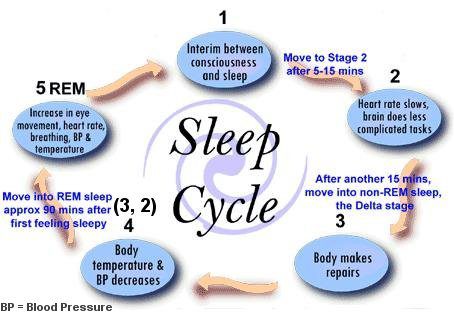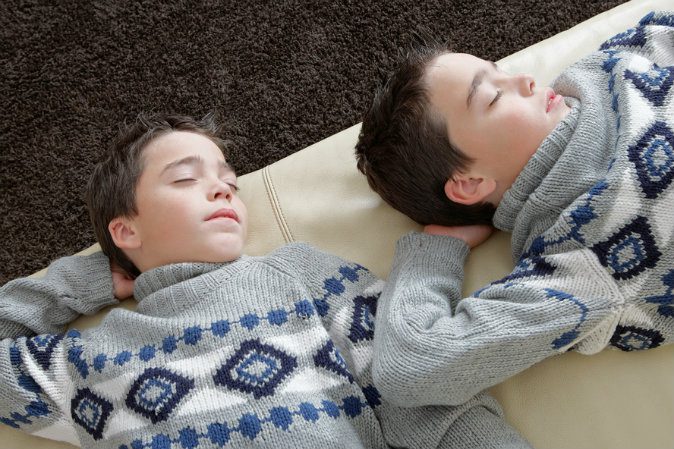The first thing that may come to your mind when I mention shared dreaming is probably Inception. Undoubtedly, the movie from Christopher Nolan was fascinating. It also asked us a very interesting question – is shared dreaming possible? Or is mutual dreaming destined to remain science fiction? Before we explore the plausibility of dream sharing, it’s important to understand how dreams work in the first place.
Dreams are, simply put, a series of images, ideas, or even emotions that usually occur involuntarily within the mind while we sleep. There isn’t any scientific consensus on why people dream, but we sure know *when* people dream. Sigmund Freud suggested that dreams are a pathway to unconsciousness. He believed that the mind enters a state where some of the suppressed data in our mind came to awareness.
When do people dream?
Our sleep is much more complex than you may imagine. Scientifically, it’s categorised into five stages.

Stage 1
The first begins when you fall asleep, obviously. Think of it a semi-conscious state. You have closed your eyes but can easily be woken up. This period is very short and lasts for about ten minutes.
Stage 2
A little after ten minutes into sleep, your heart rate slows down and your body temperature drops. You are into light sleep right now. Your body is preparing itself for deep sleep. This is the second stage.
Stage 3: Delta Stage
Stages 3 and stages 4 are deep sleep stages. Stage 3 is called the Delta stage. It can be incredibly hard to wake someone up on these stages. You’re going to feel severely disoriented and dazed if you were woken up any time during stage 3 or 4.
Stage 4: REM Sleep
During Non-Rapid Eye Movement (NREM) sleep, your body works to strength your immune system and at the same time build bone and muscle. You also repair and regrow your tissues during deep NREM sleep. You do not dream during any of these stages.
You dream in REM sleep. Research indicates that REM sleep usually occurs 90 minutes once you fall asleep. You may experience REM sleep up to half-an-hour. This is not like Stage 2 where the body relaxes. You start breathing quick and at the same time, there is a rise in your heart rate. For your brain is more active during REM sleep, you shall experience intense dreams.
Can we share our dreams? Is Mutual Dreaming Possible?
So dreams occur during REM sleep. Moreover, people usually have no control over their dreams for this is usually an involuntary activity. In fact, physical paralysis is a defence mechanism the body applies to prevent you acting out your dreams and causing physical harm. Nevertheless, it is possible to achieve a certain level of voluntarism to dreaming. That’s exactly what lucid dreaming is – awareness that you’re dreaming. Lucid dreaming is a fairly common phenomenon, and people even practice getting better at it with dream diaries.
Lucid dreaming gives you a whole new level of control over dreaming. Could multiple people exploit this degree of control to engage in shared dreaming, and communicate with each other?
Dream Telepathy
The concept of Dream Telepathy sheds some light on communicating with each other while dreaming. Sigmund Freud was the first person to record modern dream telepathy, but the concept has always been controversial. Experiments involved delivering similar stimuli to two people – the ‘receiver’ and the ‘transmitter’ – and separating them while they slept and dreamt. However, there’s no scientific evidence to back up the claim that this works. Not yet.
The Physics Behind Shared Dreaming: Quantum Entanglement
Turns out there are theoretically possible ways to validate dream sharing, thanks to quantum entanglement. Before we dive in, let’s consider some limitations while not considering quantum entanglement. Here, for two people to share dreams, you should successfully synchronize REM sleeps of both the individuals. Experiments have been conducted to investigate if it is possible to induce the same dreams in two separated individuals given similar stimuli – allowing them to ‘share’ their dreams. Results look promising, but remain inconclusive.

To delve into the physics of dreams, we have to understand quantum entanglement. According to the principles of quantum entanglement, everything in the universe may be interrelated. Consider two particles with the total spin of the system as zero. If one moves in clockwise direction, the other has to move in counterclockwise direction to satisfy quantum laws. This concept has been experimentally proven numerous times – if one entangled particle exhibits a certain property when observed, the other must exhibit a corresponding property instantanously, defying the speed of light. If we are to assume that universe is one single consciousness, then our minds may be entangled in quantum ways. What does this mean? If the mind of one person is in a certain state while dreaming, the other may be in another state directly induced by the first.
If we’re ever going to exploit these laws to our advantage, it opens up the possibilities of dream sharing.
Biological Magnetism
Another theory at attempting shared dreaming could involve our body’s natural magnetism. Electricity and magnetism are different manifestations of the same fundamental force – electromagnetism. They’re induced by each other. The neurons in our body work and transmit information by exploiting differences in electrical properties (current, voltage) between each other. This electric current, however feeble, would produce tiny magnetic fields in the brain. Ever heard of ‘brain controlling magnets’? They exploit this principle.
While nothing significant has been done to study the results of a strong magnetic field on the brain while you dream, there does exist exciting potential for mutual dreaming experiments.
While we remain some way off from any seemingly reliable application of dream sharing, seeing some potential in a science-backed attempt at mutual dreaming is certainly encouraging.
Side note: You get much lesser REM sleep as you grow old (Infants spend around 50% of their time in REM sleep while adults spend on 20% of their time). Ultimately, you dream less as you grow older. Enjoy dreaming while it lasts.


